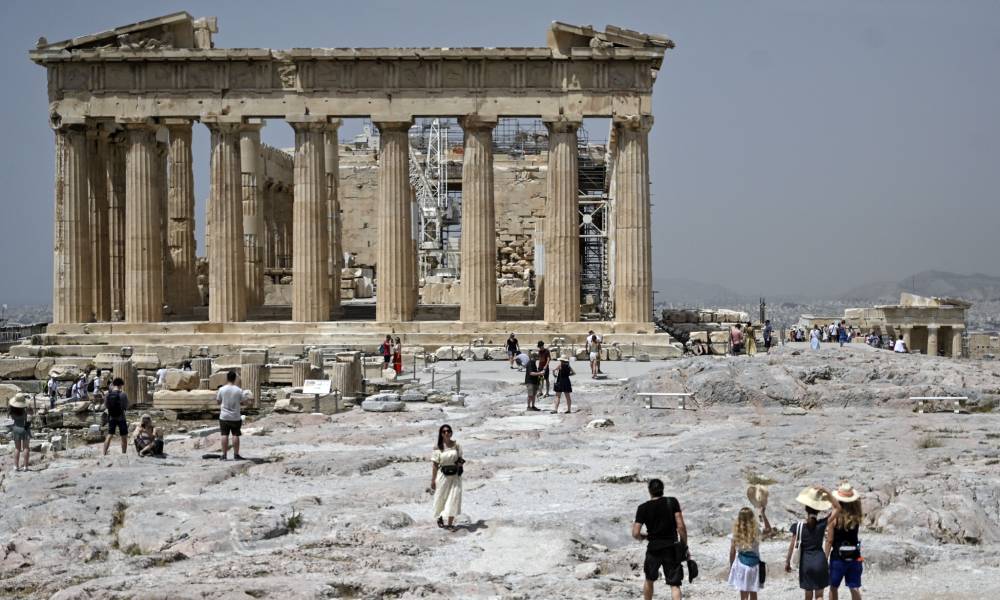Tourists visit the Ancient Acropolis archeological site in Athens on 1 July 2021. (Louisa Gouliamaki/X07402/AFP via Getty)
Greece’s culture ministry has launched an investigation following the release of a short film showing two men having sex at the ancient Acropolis in Athens.
The 36-minute film, entitled “Departhenon” or “Xeparthenon” in some reports, was released in December but only came to the attention of authorities in January after it was widely circulated online.
The clip showed two men, wearing face coverings, having sex at the UNESCO-listed site in full view of the public and surrounded by tourists, according to Greek Reporter.
The makers of the film, who have remained anonymous, described themselves as LGBT+ activists in a statement and said they chose the Parthenon for its symbolism.
They said the historical site “works for many as a symbol of nationalism, commercialisation, mass culture and puritanism”.
The filmmakers said: “Some of us are subject to physical and verbal violence for our choices and expressions of sexuality… we will live our love and sexuality as we wish and we will defend the existence in public, but also the coexistence, of all sexualities that do not violate the self-disposition of our bodies.
They also described the erotic scene between two men at the archaeological site as a “political act”.
Officials from the Greek culture ministry said it did not give permission for the film to be shot at the Acropolis. The ministry said in a statement that it is looking to “find as soon as possible those responsible for this illegal shoot”.
“The archaeological site of the Acropolis does not lend itself to activism or any other action that offends or shows a lack of respect to the monument,” the ministry said.
Greek officials are also investigating if employees of the Acropolis were involved in the shooting of the film.
Spyros Bibilas, president of the Greek Actors’ Association, said in an interview on broadcast ANT1 that he was “ashamed” to see the film.
“No one can use the Sacred Rock of the Acropolis for so-called activist actions and revolutionary acts, which are in fact both stupid and immoral,” Bibilas said.
He continued: “You can not do anything you want in the name of activism. In fact, I don’t consider this to be activism… As a Greek, I feel ashamed.”
UNESCO described the Acropolis as the “most striking and complete ancient Greek monumental complex still existing in our times”.
The agency added that “strong fortification walls” have surrounded the “summit of the Acropolis for more than 3,300 years”.
It added that the Athenians “carried out an ambitious building programme” in the 5th century BC after being “empowered from their victory over the Persians”. This building project consisted of several monuments including the Parthenon, the Erechtheion, the Propylaia and the temple of Athena Nike.
